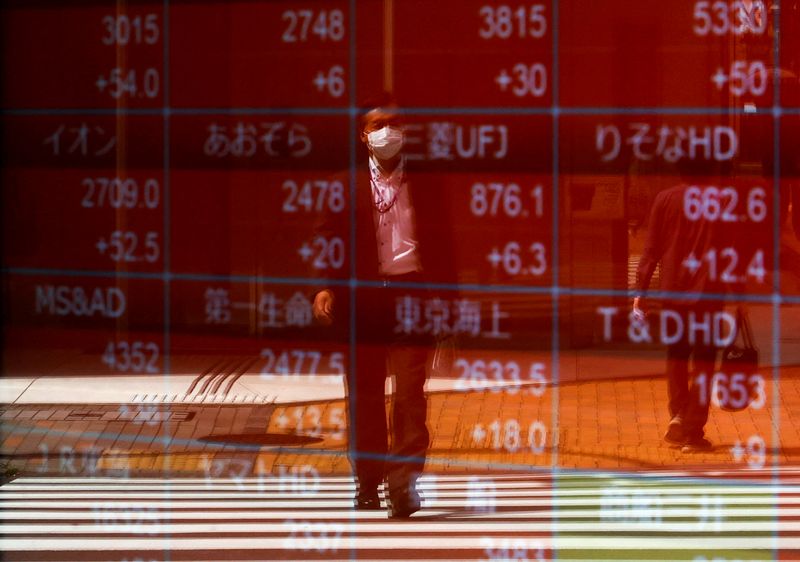By Gaurav Dogra and Patturaja Murugaboopathy
(Reuters) - Asian bonds attracted their highest monthly foreign inflows in about two years in May, boosted by hopes of less aggressive monetary tightening measures from the U.S. Federal Reserve.
Foreigners purchased a net $10.1 billion worth of bonds in India, Indonesia, Malaysia, South Korea and Thailand, marking their biggest monthly purchases since June 2021, data from regulatory authorities and bond market association showed.
"Asia ex-China (bonds) could benefit as the Fed approaches the end of its tightening cycle, notwithstanding residual uncertainty on the terminal rate," said Fiona Lim, senior fx strategist at Maybank.
"This is especially in light of an arguably resilient macro backdrop where services sectors continue to hold up in most countries."
While the Federal Reserve maintained interest rates without change, deviating from 10 consecutive rate hikes, it indicated the likelihood of two small rate hikes by year-end to address inflation concerns.
Analysts also noted that investors were encouraged by signs that regional economies had reached their peak inflation levels, leading to anticipated interest rate cuts by central banks to stimulate economic growth.
South Korean bonds attracted net purchases of $8.2 billion, the highest since June 2021.
Khoon Goh, head of Asia Research at ANZ, said the Bank of Korea is perceived to be mulling potential rate cuts towards the end of the year, boosting the appeal for their bonds.
Malaysia and Indonesian bonds drew foreign inflow worth $652 million and $500 million, respectively, while India and Thai bonds got about $400 million each in the last month.

Maybank's Lim said the disappointment over China's weaker-than-expected data in May, alongside U.S.-China tensions, could also have spurred a re-allocation of bond flows out of China into other Asian countries.
Although foreign demand for Chinese bonds slightly rebounded in May, the percentage of foreign holdings as part of total outstanding Chinese government bonds remained at 8.3%, the lowest since July 2019, according to a Barclays (LON:BARC) report.